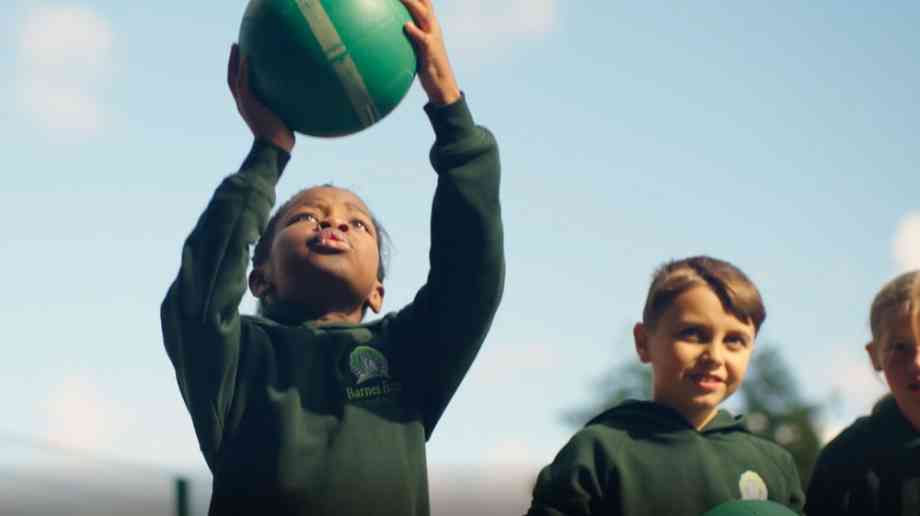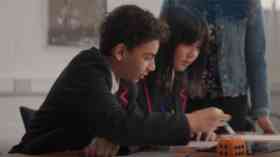
All work and no play makes school a dull place
Ross McTaggart from the Chelmsford Learning Partnership explores how intentional, well-designed play spaces can boost emotional wellbeing, improve behaviour and strengthen learning
Did you celebrate National Day for Play on 6 August? The event, created to celebrate children’s right to play and champion the importance of play in children’s development, also emphasises the vital role that schools and other organisations have in creating opportunities for children to play.
It is well recognised that intentional play strengthens children’s cognitive skills and builds their emotional resilience and social competence, thereby laying a strong foundation for lifelong learning. Structured play, led by adults and focused on specific goals, is a crucial part of children’s development. Yet, unstructured play, led by the child and driven by their interests and imagination, is just as important.
Research reveals that children in England are becoming increasingly “sedentary, scrolling and alone”, with a significant decline in opportunities for play due to factors like loss of safe outdoor spaces and excessive screen time. Research also shows that today’s children benefit from less time and space for unstructured play activities than previous generations, as budgets for public parks and play areas have been squeezed and school days have changed to accommodate national curriculum requirements. Now, more than two million children aged up to nine years old no longer live within a 10 minute walk of a playground.
Appropriately, the theme of this year’s National Day for Play was ‘spaces for play’, which served to emphasise the value of accessible and safe spaces dedicated to play. While these may often be parks, natural spaces, such as woods, beaches and rivers, are also good examples of environments that encourage play with no specialist equipment needed.
In 2023, Barnes Farm Primary School, one of our trust’s primary schools, introduced the OPAL Primary programme framework to strategically improve the quality of its play. The framework guided the team to create a play curriculum that develops skills and creates opportunities for children to socialise. Below are some of the changes that were implemented and the benefits seen since focusing on intentional play.
Creating intentional spaces for play
While every school has different facilities and space available, there were opportunities to create active and quiet spaces to encourage a variety of styles of play. At Barnes Farm Primary School, the team created different zones to meet the needs and interests of pupils, using the space available to them and theming them appropriately.
Active play was encouraged through the sandpit and tyres, while creative zones were established with items for dressing up, a mud kitchen and a cardboard city to explore. Quieter reading areas were created for pupils who prefer to read. Different textures, natural materials and colours were also used throughout the zones to provide sensory stimulation.
Skills development
Each zone and activity helps pupils to develop different skills and attributes, whether these are physical, social or emotional. Through sensory exploration in the sandpit, pupils strengthen their fine motor skills and develop important cognitive skills such as creativity, problem solving and communication. Unstructured play in the mud kitchen with their friends and peers encourages creativity, communication, cooperation and conflict resolution – all valuable skills for the classroom too.
Playtime also provided important opportunities to initiate conversations about risk, building independence and confidence E
F as pupils were encouraged to consider risks within a safe environment. At Barnes Farm Primary School, the rules for playtime were co-created with pupils to create a sense of ownership and understanding, building a sense of responsibility for their environment and strengthening their self-confidence.
Emotional and behavioural regulation
The safe and supportive environments for play that enable pupils to take risks and grow in confidence also allow them to identify, express and manage their emotions. Not only does play help pupils to develop and practice coping mechanisms for managing challenging emotions through role play and scenarios, it also means they can express their emotions both verbally and non-verbally. The rules that they co-created provide a structure to support self-regulation and consideration for others.
Guided play is particularly beneficial for supporting emotional and behavioural regulation as a trusted adult can model calming strategies, praise positive behaviour and provide reassurance.
As pupils build the tools and strategies they need for self-regulation, play, particularly outdoor play, can also help to reduce stress and improve emotional wellbeing. At Barnes Farm Primary School, we saw significant improvements in low-level behavioural incidents post-playtime since the introduction of our lunchtime play sessions. We also noted that the play curriculum provided an incentive for our pupils who were struggling to attend school on challenging days due to the fun that they have during these sessions. These children often told the school that it was the draw of a particular play zone that meant they were more motivated to come into school on difficult mornings.
Classroom improvements
In conjunction with emotional and behavioural improvements, we also saw improvements in pupils’ ability to concentrate in the classroom post-playtime. Reduced disruption meant that all pupils engaged with their learning. In addition, the numbers of children requiring low-level first aid were significantly reduced, which freed up the midday staff to more positively engage with the children around them. By expanding the options for play beyond ball games and other traditional outdoor activities, teachers also saw pupils form unexpected connections with peers outside of their typical friendship groups, which led to improved dynamics in the classroom and a greater sense of belonging for some children.
By dedicating the time and resources to developing a more structured play curriculum at lunchtimes, we saw improvements in all eight hours of the school day. The skills that we have seen pupils develop during their lunchtime play sessions since implementing an intentional play-based curriculum have also had an impact on their performance in the classroom, helping them to become strong, more confident communicators, take more risks and solve problems.
Latest News
09/01/2026 - 10:13
The measure, added to the Children’s Wellbeing and Schools Bill, delivers on the commitment made in the government’s manifesto to bring multi academy trusts into the inspection system.
08/01/2026 - 10:30
The government is launching a new app allowing students to view their GCSE results on their phones for the first time from this summer.
08/01/2026 - 09:45
Education Business LIVE has announced that Professor Samantha Twiselton OBE of Sheffield Hallam University will speak at the event in March 2026, delivering two thought-provoking sessions focused on initial teacher training and SEND provision.
07/01/2026 - 10:10
Solve for Tomorrow is a free, curriculum-linked programme which is mapped to Gatsby Benchmarks 4, 5, and 6, helping teachers embed careers education without adding to workload.
06/01/2026 - 10:24
London's universal free school meals programme has not led to improvements in pupil attainment during its first year, but has eased financial pressure and reduced stress for families.







